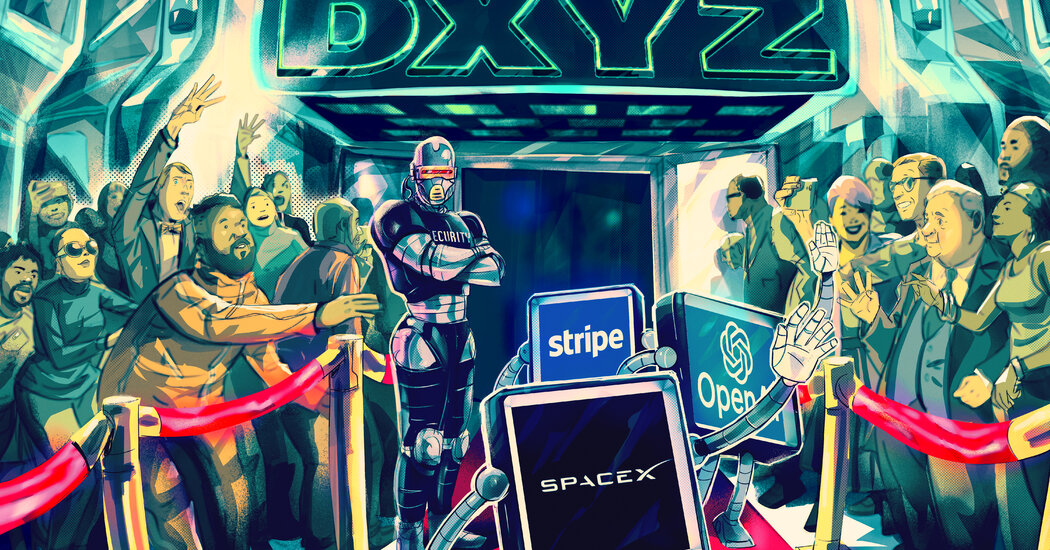The market for shares of hot start-ups like SpaceX and Stripe is projected to reach a record $64 billion this year.
Sohail Prasad, an entrepreneur, launched a fund in March called the Destiny Tech100. The fund owns shares in hot tech start-ups like the payments firm Stripe, the rocket maker SpaceX and the artificial intelligence company OpenAI.
Few people get the chance to invest in these privately held companies since their shares are not openly traded. Mr. Prasad’s intention with Destiny was to let the rest of the world get a piece of them through his fund.
But soon after Destiny debuted, two tech start-ups — Stripe and Plaid, a banking service — said the fund did not legally own their shares. A competitor criticized Destiny as “too good to be true.” Robinhood, the stock trading app, stopped letting investors buy into the fund, saying it had been added to its app by mistake.
Mr. Prasad was not surprised by the uproar. It was a sign of “a true cultural movement in which DXYZ is at the forefront,” he said, referring to Destiny by its ticker symbol.
Tensions over the shadowy and often enigmatic market of private company stocks have reached a boiling point, just as the buying and selling of such shares has grown bigger than ever. At its center is an age-old debate: Should everyone have access to the riches and risks of investing in Silicon Valley start-ups?
